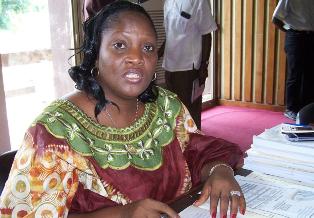Editorial: Placing Sincerity At the Core Of Reconciliation
For about a hundred and sixty three years now, the struggle for national reconciliation in Liberia has been on-going without any realization or achievement. Such failure, we believe, have been and continue to be a result of the deep-rooted hatred created among Liberians in all sectors of the Liberian society. For little or nothing, we continue to get at each other in all forms including war and other physical conflicts leading to deaths and destruction.
Perhaps, we think, the immaturity which characterized our country’s declaration of independence compounded by the hidden objectives of our founding fathers, as well as their “upper class” relations with their pre-independence Liberian compatriots has got us far from reconciling ourselves.
Upon assuming the Country’s Leadership in 1944, Liberia’s 18th President, the Late William V.S. Tubman, through his integration and unification policy, to some extend worked assiduously between Monrovia and the interior to foster national reconciliation, but such venture was short lived following his demise, due to what we believe to be the entrenched animosities, selfishness and envies harbored by the descendants of pre-independence Liberians.
Even despite the intervention of Tubman’s successor, Dr. William R. Tolbert, Jr., through the incorporation of more aboriginal Liberians into government and other fractional organizations, as far as the continuation of the integration and unification policy was concerned, reconciliation became far from realization.
The ousting of Tolbert in 1980, the man Many Liberians still consider the country’s most progressive leader, coupled with the 1989 insurrection planned, coordinated and executed against Former President Samuel Kanyon Doe, the man who they say ” overthrew Tolbert” leading to his brutal death in 1990, further stalled the process and broadened the division in Liberia up to the moment.
We at the New Dawn have, of late observed the numerous contentions being raised against various publications of photos of the dead bodies of a number of officials of past Liberian Governments, as well as comments in the Liberian media against the “snail pace” which the present government is moving in fostering national reconciliation.
[bsa_pro_ad_space id=1]
While we wholehearted regret and submit to these concerns, we also strongly believe that though the government is the front-runner, the process of reconciliation does not only rest with it. While we do agree with the proponents of these concerns that the government is only cosmetic and not sincere about reconciliation as evidenced by situations in Nimba and Lofa Counties, we also believe that Liberians themselves have a major role and stake in reconciling themselves.
That some citizens today, will publicly declare their preferment of others burning in hell, suggests that we as a people are not ready to reconcile ourselves.
While it is true that the division among Liberians has its genesis in the foundation of the country and the negative perceptions harbored against aboriginal Liberians by the descendants of freed slaves returning home, we do believe that having graduated from such era into a more decent, civilized and professional way of life in this modern era, the issue of sincerity among ordinary Liberians, most especially those affected by the various forms of conflicts and the perpetrators, in the process of national reconciliation must be their foremost priority.
With this in mind, we see no reason why reconciliation will continue to be unachievable among Liberians, even if the government which should be the chief facilitator was disinterested. We are of the fervent belief that for reconciliation to succeed in Liberia it must first start from the minds-the minds must be open and willing to accept whatsoever in any mitigation before the physical interactions of the aggrieved and perpetrators.
While we also suggest that fostering reconciliation is a two-way process, may we remind the government that reconciliation is not only resolving conflicts, but reaching out to mend fences in line with commitment, participation and inclusion of individuals and institutions left out of the governance process in the country.
We again, do believe that when SINCERITY is placed at the core of all interactions, as far as conflict resolution, participation and inclusion in governance are concerned; there can be genuine reconciliation in Liberia.




















